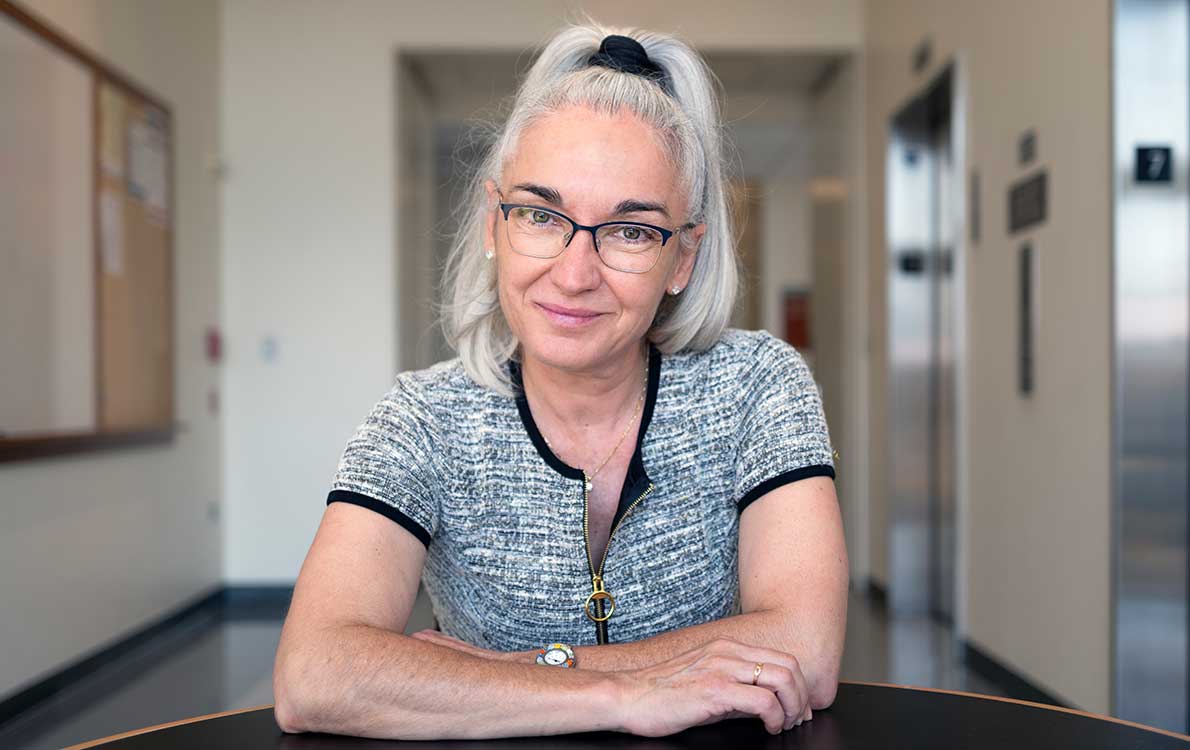Eva Nogales, a senior faculty scientist in Lawrence Berkeley National Laboratory’s (Berkeley Lab) Biosciences Area, has been elected as a Foreign Member of the Fellowship of the Royal Society, the UK’s national academy of sciences.
Nogales – who is also a UC Berkeley distinguished professor of biochemistry, biophysics, and structural biology – is among the more than 90 new Fellows, 24 new Foreign Members, and 1 new Honorary Member elected to the Society this year.
Renowned for her expertise in cryo-electron microscopy technology and image analysis, Nogales’s research focuses on regulatory mechanisms underlying gene expression and cytoskeleton self-assembly during cell division. She has collaborated with scientific teams from around the world. She has been a Howard Hughes Medical Institute Investigator since 2000. More about Nogales’ expertise is available on her Biosciences Area profile page.
Nogales has been honored with numerous research awards. She is a Fellow of the American Association for the Advancement of Science, a member of the National Academy of Sciences, the American Academy of Arts and Sciences, and a Fellow of the American Society for Cell Biology and the Biophysical Society, and Foreign Member of the Spanish Royal Academy of Sciences and of EMBO. She received the Berkeley Lab Director’s Award for Exceptional Science Achievement and the 2023 Shaw Prize in Life Science and Medicine.
The Royal Society, which dates back to 1660, is the oldest scientific academy in continuous existence. The self-governing fellowship is made up of the most eminent scientists, engineers, and technologists from the UK and the Commonwealth. Fellows and Foreign Members are elected for life through a peer review process on the basis of excellence in science.
The Society’s fellowship of approximately 1,800 Fellows and Foreign Members include around 85 Nobel laureates. Each year up to 73 Fellows and up to 24 Foreign Members are elected from a group of around 800 candidates who are proposed by the existing fellowship.
For more information, see:
“Exceptional scientists elected as Fellows of the Royal Society,” Royal Society news release
###
Lawrence Berkeley National Laboratory (Berkeley Lab) is committed to groundbreaking research focused on discovery science and solutions for abundant and reliable energy supplies. The lab’s expertise spans materials, chemistry, physics, biology, earth and environmental science, mathematics, and computing. Researchers from around the world rely on the lab’s world-class scientific facilities for their own pioneering research. Founded in 1931 on the belief that the biggest problems are best addressed by teams, Berkeley Lab and its scientists have been recognized with 16 Nobel Prizes. Berkeley Lab is a multiprogram national laboratory managed by the University of California for the U.S. Department of Energy’s Office of Science.
DOE’s Office of Science is the single largest supporter of basic research in the physical sciences in the United States, and is working to address some of the most pressing challenges of our time. For more information, please visit energy.gov/science.
